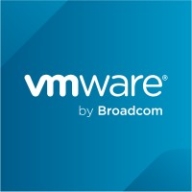

Find out in this report how the two Business-to-Business Middleware solutions compare in terms of features, pricing, service and support, easy of deployment, and ROI.
| Product | Market Share (%) |
|---|---|
| MuleSoft Anypoint Platform | 8.8% |
| IBM Sterling B2B Integration Services | 13.2% |
| SEEBURGER Business Integration Suite | 10.9% |
| Other | 67.1% |
| Product | Market Share (%) |
|---|---|
| Spring Cloud Data Flow | 1.1% |
| SSIS | 3.6% |
| Informatica Intelligent Data Management Cloud (IDMC) | 3.6% |
| Other | 91.7% |

| Company Size | Count |
|---|---|
| Small Business | 22 |
| Midsize Enterprise | 12 |
| Large Enterprise | 30 |
| Company Size | Count |
|---|---|
| Small Business | 3 |
| Midsize Enterprise | 1 |
| Large Enterprise | 5 |
MuleSoft Anypoint Platform provides API management and integration capabilities with scalability, ensuring seamless connectivity across systems.
MuleSoft Anypoint Platform offers API management and integration capabilities within a user-friendly interface. With a range of connectors and the ability to handle integration patterns, it enables data integration across environments with support for API-led connectivity. High scalability, observability, batch processing, and tooling are key features, enhancing performance while simplifying deployment.
What are the standout features of MuleSoft Anypoint Platform?MuleSoft Anypoint Platform is employed by organizations for API management and seamless integration across systems in industries like retail and e-commerce. It connects enterprise applications in environments such as SAP and Salesforce. Users leverage it for data transformation and synchronization, achieving efficient real-time processing and a middleware layer across systems.
Spring Cloud Data Flow is a toolkit for building data integration and real-time data processing pipelines.
Pipelines consist of Spring Boot apps, built using the Spring Cloud Stream or Spring Cloud Task microservice frameworks. This makes Spring Cloud Data Flow suitable for a range of data processing use cases, from import/export to event streaming and predictive analytics. Use Spring Cloud Data Flow to connect your Enterprise to the Internet of Anything—mobile devices, sensors, wearables, automobiles, and more.
We monitor all Business-to-Business Middleware reviews to prevent fraudulent reviews and keep review quality high. We do not post reviews by company employees or direct competitors. We validate each review for authenticity via cross-reference with LinkedIn, and personal follow-up with the reviewer when necessary.